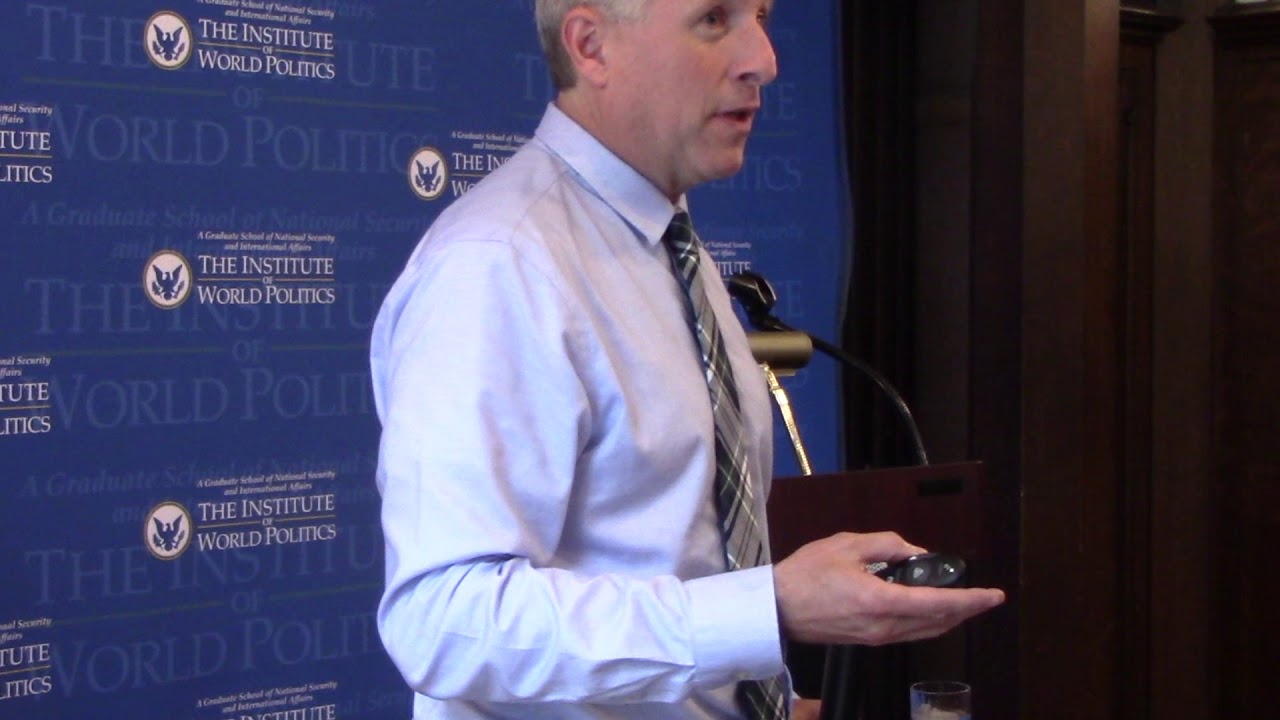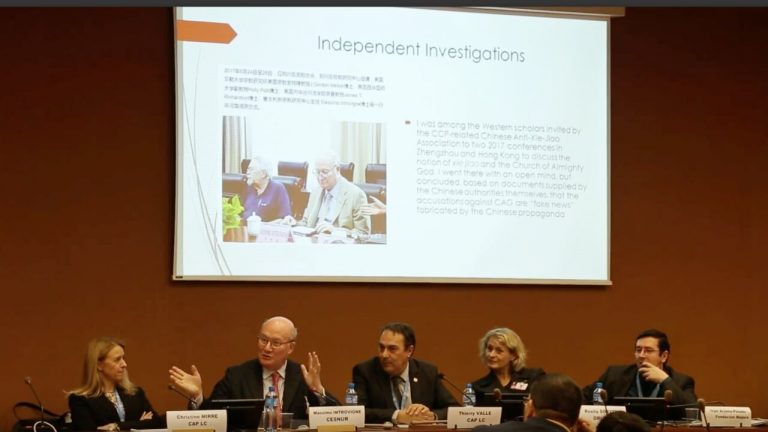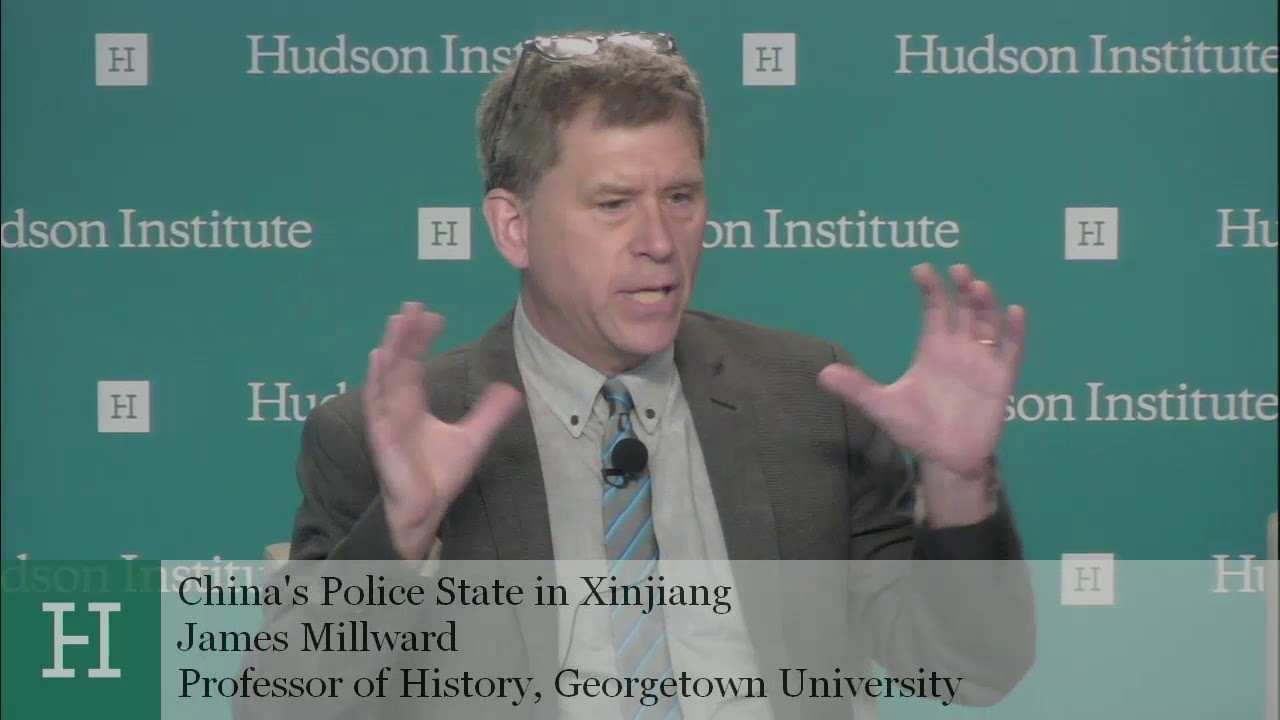A seminar of scholars and politicians in the European Parliament loses an excellent opportunity to put respect for human rights at the top of priorities.
In the second half of May, the member states of the European Union (EU) will hold elections to renew the European Parliament (EP), and it is logical that, one after the other, hot topics are surfacing. One of these is undoubtedly the relations that the EU has, and above all will have, with the other giants of the international political scene: for example, China. Especially in a historical moment in which the Asian colossus is overtly expanding its power and its grip through the Belt and Road Initiative in spite of the fact that, although it has been the protagonist of the dizzying and proverbial economic growth, it is now lagging behind in the midst of the recent slowdown in its manufacturing output, the decline of the renminbi (Chinese yuan) compared to the US dollar, and the clash on tariffs with the United States of America (the effects of which are also felt in the EU).
Therefore, it makes a lot of sense to have a seminar like the one organized by the German representatives to the EP, Jo Leinen, a Social Democrat, and Reinhard Butiköfer, of the Greens, respectively, president and vice president of the Delegation of the EP for relations with the People’s Republic of China, entitled Political values in Europe-China relations. It took place in the Altiero Spinelli building of the EP in Brussels on January 30, and featured Una Aleksandra Bērziņa-Čerenkova from the Latvian Institute of International Affairs in Riga; Alice Ekman from the Institut français des relations internationales in Paris; Mikko Huotari from the Mercator Institute for China Studies in Berlin, Germany; Tamás Attila Matura, from the Corvinus University in Budapest, Hungary; Plamen-Tilemachos Tonchev, from the Institute of International Economic Relations in Athens; and Tim Nicholas Rühlig, from the Swedish Institute of International Affairs in Stockholm.
Human rights not at the top of the agenda
That said, at the cost of appearing naïve, even very much naïve, one would expect that talks about political and commercial relations among countries cannot disregard the respect for human rights and the fundamental liberties of the person. If it makes sense that two despotic countries find it easy to understand each other politically and economically, it also makes sense to expect that a democratic state demands from its probable or possible political and economic partner to respect at least the standards of democracy that it personally observes. How can one think that a democratic country can deal at political and economic level with another if the latter arbitrarily imprisons, tortures, abuses and even kills its citizens? You do not need to be morally superior to understand that trading with a country where human dignity is trampled daily is not good for affairs; even cynics get it. In fact, everyone understands how economically risky, not to say detrimental, it is to maintain commercial exchanges ‒ where all is based on trust, compliance with agreements, respect for rules and transparency ‒ with a treacherous and double partner, used to acting outside the law, to lie and to subjugate rather than to benefit its citizens.
Why then (and here is all my intentional naïveté announced above), when it comes to relations between the democratic states of Europe and a totalitarian country like China, are human rights not at the top of the agenda? The seminar of January 30th in Brussels, for example, didn’t put them on top of the list.
Raise the stakes
Well, a few words were said, some facts were mentioned, but with the handbrake pulled, stealthily. As if the scholars who intervened knew, consciously or subconsciously, not to push things beyond a certain limit. One could say that this is the way scholars operate since they express themselves differently from activists. True, but only partially. Yes, scholars do their job in a different manner from that of the activists, and rightly so; on the other hand, even scholars are able, if they want to, to put things clearly. Of course, differently from activists, but certainly not in a less straightforward way.
After all, in the Brussels seminar, Mikka Huotari explicitly said that several things happening in China are incompatible with the standards that the EU countries are accustomed to. Una Aleksandra Bērziņa-Čerenkova has specified that Latvians have little sympathy for the model of government that dominates China as well as for the flippant approach that Beijing adopts towards international law. Tamás Matura reported that, if Hungary looks favorably on China, it is not so for the Czech Republic and Poland, whose societies are amply impatient towards the “Beijing model”, adding that, in these assessments, it is always necessary to carefully distinguish the attitudes of the governments from the orientations of the citizens. Alice Ekman has opportunely noted that, when dealing with China, one cannot take anything for granted so that each time it’s necessary to make sense of the words defining their meaning. Rights, law, government, and freedom do not have the same meaning in China as in Europe.
But then, if the scholars who spoke at the seminar feel some uneasiness, and somehow reveal it, why can’t we completely turn priorities upside down (I am still intentionally naïve) and make way for respect of human rights and fundamental liberties of a person a binding paradigm of any other yet legitimate political and economic question? Why, in short, can’t we start from those tenets, explicitly saying that as long as China does not change its attitude on human rights and fundamental liberties, there can be no partnership?
Now (and here my naïveté ends), in the globalized world, it is not possible to retreat in some splendid isolation. It is evident that, like it or not, the rest of the world has to come to terms with the Chinese economic power. But it is equally valid that the stakes can be raised, that the chip of respect for human rights can be put on the table. And it is not true that if one did it, China would leave the table: in order to trade, there must always be at least two.
Two kickers
Certain self-censorships are thus inexplicable. To scholars, who do not act in politics, it wouldn’t cost much to speak openly. At the price of seeming idealists, they can afford it because they hold no political office, and if they speak frankly, they may even benefit from it.
For politicians, however, the price may be higher. They have an ideological agenda to follow and have no intention of affording themselves certain liberties. This is a mischievous statement of mine, but the conclusion of the Brussels seminar on Wednesday has helped to nurture it.
Some thirty minutes prior to the conclusion of the seminar, once the speakers had all given their presentations, Mr. Butiköfer, who acted as the coordinator of the table, opened the Q&A session. He collected all the interventions from the public and then gave back the floor to the speakers. Out of the many questions, two touched the hidden heart of the problem. The first (the first ever) was Ryan Barry’s of the Uyghur Congress in Munich, Germany: he asked if the news of the million (at least) Uyghurs that the CCP unlawfully detains for religious and ethnic reasons in the Xinjiang’s transformation through education camps have had an echo in the European countries reviewed by the speakers. Another question was posed by a Chinese lady who asked if the politicians realized that any consideration on China couldn’t ignore the fact that China professes a Communist ideology and practices a Communist ideocracy, which aims at total domination and degradation of people. At this point, two kickers followed.
The first was Mr. Butiköfer’s management of the Q&A: he summarized all the audience’s questions, inviting the speakers to choose their favorite to answer but omitting the two mentioned above, Uyghurs and Communism. Then, he gave the floor to the speakers in reverse order compared to their first run of interventions; they chose to answer everything but the two above mentioned questions, perhaps because the moderator omitted them. Thus, at time expired, with an attendant who signaled to Mr. Butiköfer that it was time to leave the room to a subsequent event, Mikka Huotari took the floor again. And here is the second kicker: he meritoriously recovered the unanswered question on Uyghurs. But at that point, there was no more time, and the question remained suspended in the void (the one on Communism never reappeared on the horizon).
Last updated on February 4, 2019.
Source:BITTER WINTER /







